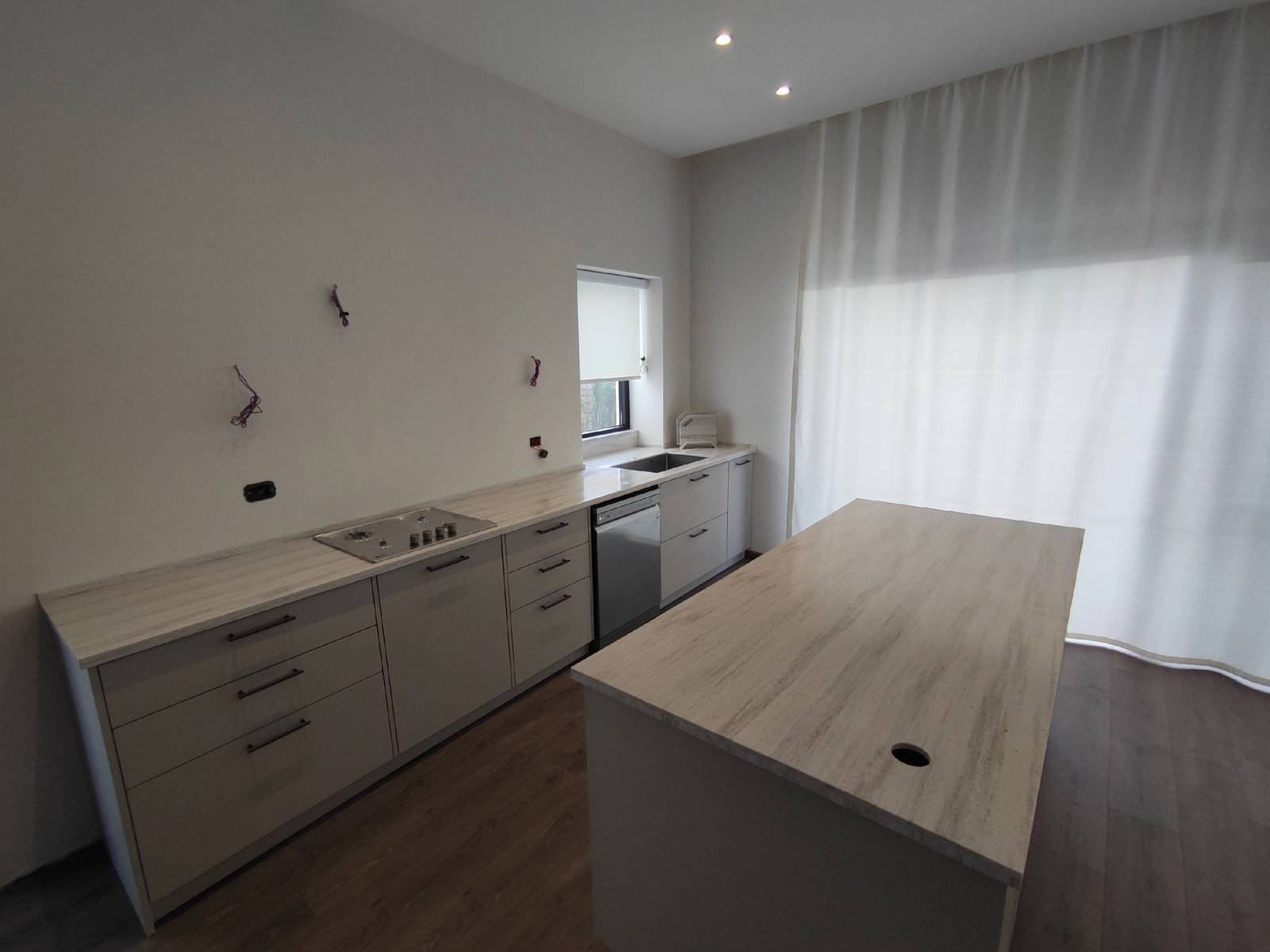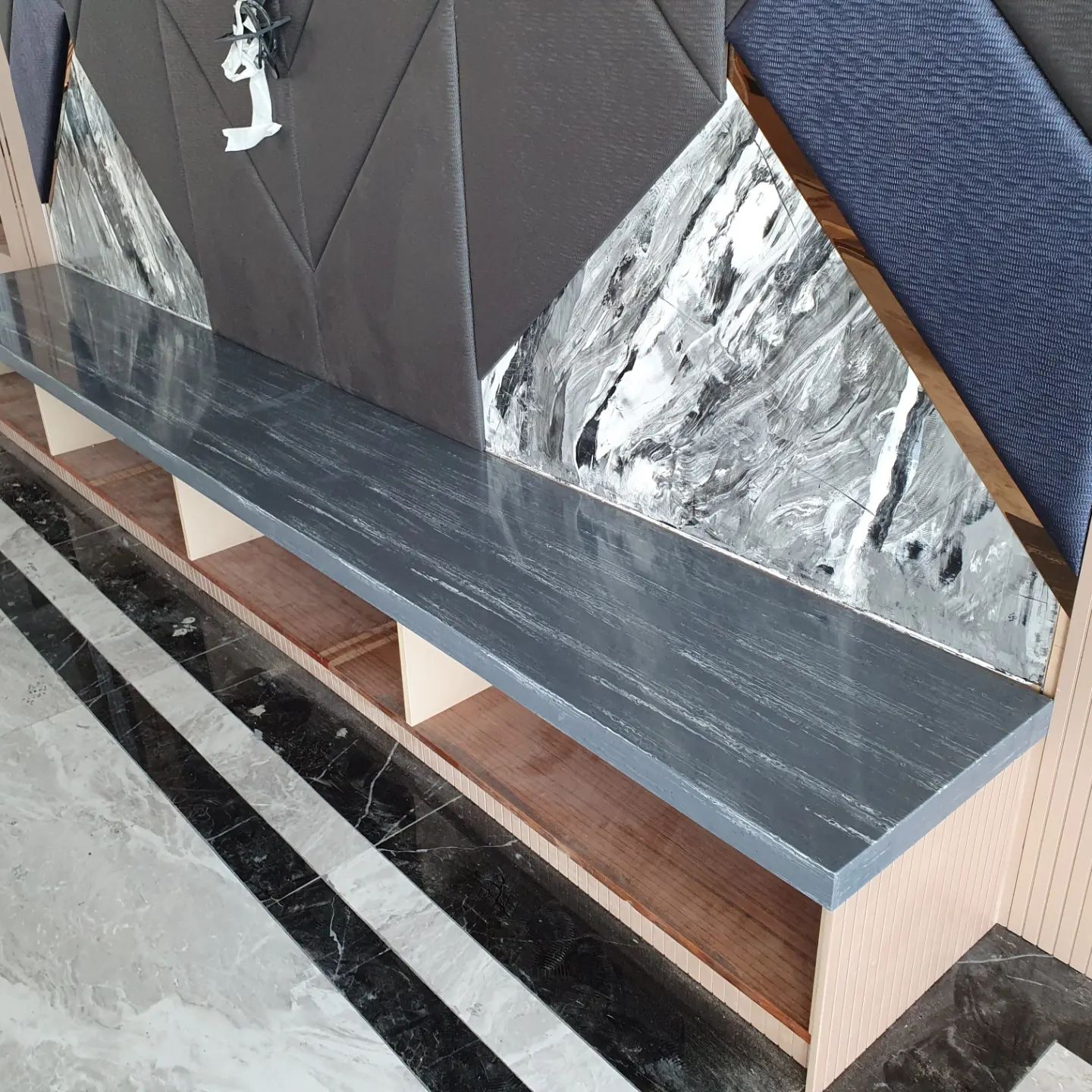Sustainability is no longer a buzzword—it's a necessity in modern architecture and construction. With environmental concerns taking center stage, architects, builders, and designers are seeking materials that deliver durability, versatility, and eco-friendliness. One increasingly popular option is solid surface material, also called artificial stone, which combines sustainability with aesthetic appeal.
This blog will explore how solid surface materials contribute to sustainable building practices, their environmental advantages, and why they are an excellent choice for modern design.
What is Solid Surface Material?
Before jumping into its environmental benefits, it’s crucial to understand what solid surface material is. Often referred to as artificial stone, solid surface materials are engineered materials crafted from a blend of natural minerals, acrylic, and resin. They mimic the appearance of natural stone while delivering advanced versatility for various applications, such as countertops, wall cladding, and architectural features.
Unlike natural stone, artificial stone is highly customizable, non-porous, and allows seamless installations. These properties make it not only aesthetically pleasing but also an environmentally conscious choice for construction and design.


Why Sustainability Matters in Construction
The construction industry is one of the largest contributors to global greenhouse gas emissions and environmental degradation. According to the United Nations Environment Programme (UNEP), the industry accounts for over 35% of global final energy use and nearly 40% of carbon dioxide (CO2) emissions.
Sustainable practices in construction, including the use of eco-friendly materials, are crucial to reducing this footprint. Materials like artificial stone offer a unique opportunity to balance functionality, aesthetics, and sustainability in building projects.
Environmental Benefits of Solid Surface Materials
Solid surface materials are increasingly favored for their distinct environmental benefits. Here's how they contribute to sustainable building practices:
1. Long Lifespan Reduces Waste
Durability is one of the most significant advantages of artificial stone. Solid surface materials are resistant to stains, scratches, and impact, which means they have a much longer lifespan compared to traditional materials. This reduces the need for frequent replacements, ultimately minimizing construction waste.
For example, a solid surface countertop can last for decades with minimal maintenance, making it a sustainable option for kitchens, bathrooms, and commercial spaces.
2. Non-Porous and Repairable
Unlike natural stones like marble or granite, solid surface materials are non-porous, making them resistant to moisture and bacterial growth. This not only improves hygiene in kitchens and bathrooms but also means they require fewer harsh chemical cleaners, which can harm the environment.
Additionally, solid surface materials are repairable. Minor damage, like scratches and chips, can be easily sanded or buffed out, extending the material's life and reducing the need for replacements.
3. Recycled Content
Some manufacturers are taking sustainability a step further by producing artificial stone from recycled materials. Depending on the brand, solid surface products can include recycled acrylic or stone, which helps reduce the demand for virgin raw materials.
For example, certain brands of solid surface countertops may contain up to 40% recycled content, cutting down the environmental toll associated with extracting and processing new materials.
4. Energy-Efficient Manufacturing
The production of solid surface materials often involves streamlined, energy-efficient processes compared to the extraction and refinement of natural stone. Many manufacturers are adopting practices that reduce their energy use, carbon emissions, and water consumption during production.
By opting for materials produced under such conditions, builders can reduce the overall carbon footprint of their projects.
5. Adaptability Reduces Material Waste
Solid surface materials allow for seamless integration, which means architects can use them effectively without excessive offcuts or waste. Since artificial stone can be molded into virtually any shape or size, it helps prevent material wastage during installation, further contributing to sustainable building practices.
6. Low VOCs for Healthier Indoors
Volatile Organic Compounds (VOCs) are harmful chemicals often released by construction materials, leading to indoor air pollution. Many solid surface materials are certified to have low or zero VOC emissions, creating healthier indoor environments—especially critical in commercial buildings, schools, and healthcare facilities.
Versatile Applications of Solid Surface in Sustainable Design
Another key aspect that makes artificial stone a sustainable choice is its versatility. It can be used for both functional and decorative purposes, eliminating the need for multiple materials in a single project. Below are some applications where solid surface materials truly shine:
Countertops and Surfaces
Durable, easy to clean, and aesthetically pleasing, solid surfaces are ideal for kitchen countertops, bathroom vanities, and work surfaces in both residential and commercial spaces. They provide a sustainable and stylish solution that minimizes long-term waste.
Wall Cladding
Non-porous and water-resistant, solid surfaces are an excellent option for wall cladding in high-moisture areas like bathrooms. Their light weight also makes transportation and installation more efficient.
Furniture and Fixtures
From custom furniture to desks and shelving, solid surfaces allow designers to create bespoke pieces that are not only unique but also sustainable. Their seamless, moldable nature ensures less waste and greater design precision.
Exterior Facades
Solid surfaces are often used as exterior facades due to their weather resistance and low maintenance needs. By lasting longer than traditional materials, they offer a sustainable solution for large-scale construction projects.


Choosing the Right Solid Surface Manufacturer
When considering solid surface materials for your sustainable building project, selecting the right manufacturer is critical. Look for suppliers that prioritize eco-friendly practices, source recycled materials, and meet certification standards like GREENGUARD for low VOC emissions.
Additionally, many manufacturers provide warranties for their artificial stone products, ensuring long-lasting performance and reducing the risk of early replacements.
Final Thoughts on Artificial Stone and Sustainability
Solid surface materials, or artificial stone, represent a modern blend of functionality, aesthetics, and eco-consciousness. By incorporating these versatile materials into construction projects, architects and builders can significantly contribute to sustainable building practices without compromising on design or performance.
Whether you’re designing a residential kitchen or a large-scale commercial building, choosing solid surface materials helps reduce environmental impact while delivering timeless results.
If you're ready to explore the possibilities of artificial stone for your next project, connect with trusted manufacturers or browse sustainable options in your region. Together, we can build a future that’s as beautiful as it is sustainable.
Solid Surface
artificial stone
best artificial stone countertops
English
العربية
Français
Русский
Español
Português
Deutsch
italiano
日本語
한국어
Nederlands
Tiếng Việt
ไทย
Polski
ພາສາລາວ
ភាសាខ្មែរ
Bahasa Melayu
ဗမာစာ
Filipino
Bahasa Indonesia
magyar
Română
Čeština
Монгол
қазақ
Српски
فارسی
Kiswahili
Slovenčina
Slovenščina
Norsk
Svenska
українська
Ελληνικά
Suomi
Հայերեն
עברית
Dansk
Shqip
Hrvatski
Gaeilge
Eesti keel
latviešu
Azərbaycan dili
Беларуская мова
Български
ქართული
ʻŌlelo Hawaiʻi
Wikang Tagalog





























